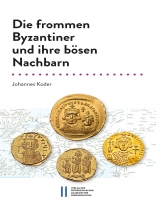The monk Theophanes († 818) reports on the period from 284/5 to 812/3 AD in simple language and a clear, chronological text. According to Theophanes, the 7th century was the decisive epoch in the history of the Byzantine Empire, encompassing the last Persian Wars and the empire’s first confrontations with the Arabs, who had been newly converted to Islam by the Prophet Muhammad. Other central themes are the settlement of Slavic tribes in south-eastern Europe in the wake of the Avar campaigns of conquest, and Byzantine domestic politics.
The introduction addresses the biographical background and ideological basis of the author, the influence of Greek and Oriental sources on the Chronicle of Theophanes, and its influence on the historiography of the Western Middle Ages, thanks to the early Latin translation by Anastasius Bibliothecarius († 879), a Vatican librarian. The introduction also discusses how Theophanes portrays the political leaders prominent in the chronicle, as well as peculiarities in his style, vocabulary, and language. Also examined are the frequent use of direct speech in the account often inserted into the account and the slogans, mostly in verse, that the Green and Blue political parties shouted during demonstrations in Constantinople, loudly supported by the people.
Mengenai Pengarang
ist em. o. Professor der Universität Wien und wirkliches Mitglied der Österreichischen Akademie der Wissenschaften












